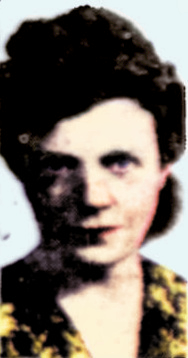The Pittsburgh Press (September 22, 1941)

I DARE SAY —
…
Parrygraphs
…
By Florence Fisher Parry
The loyalty which the French people still feel for old Marshal Pétain, in face of his sad sellout to the Nazis, has been the prime factor in preventing the de Gaulle cause from marshalling the civilian populace of France to a more spirited underground support.
Heroes die a slower death in France than in America, then. The great names go down fast here; we are quick killers when we’re fooled. Grant, Dewey: they died lonely and forsaken deaths. Yet in their day they were heroes to match with any glorious idol of any war.
No one ever stirred the people to a greater adoration than Charles A. Lindbergh. He’s booed now; denied entrance into Texas; shunned by his neighbors; done for. We in America would have made short shrift of a Pétain, however old and well-meaning he may have been. The British, too, are realists when it comes to their great men. Old Chamberlain is but a regrettable memory now. Were he alive today, who in England would make apology for him?
Conqueror
This is what Napoleon had to say of Russia:
…One cannot attack either from the side or from the rear… She overflows on you if you lose; she retires into the middle of the ice banks if you win, and suddenly comes out again like the head of the Hydra…
It has been comforting for the democratic world to resay these words… Today’s news hints that they may be words that will have to be eaten… Odessa… Kiev… Hitler is again defying history. And Stalin sits in his great room in the Kremlin, his heavy brute lips closing like a trap upon his pipe, in an ugly and ominous smile… So far only a few squadrons of British planes; so far only a few tankers of American oil…
Author!
You read a book, and after that you know you will read everything that may come from the pen of its author. The Constant Nymph was such a book… So yesterday I read another book by Margaret Kennedy, that shook my heart out, Where Stands a Winged Sentry. It is a book that takes the shape of a personal journal. It lets its reader walk into the mind of England as she waited for the invasion she felt sure was to come on Sept. 15, 1940. After reading it, one can never say “war of nerves” again without the pit of his stomach caving in…
Three women have succeeded in setting down the horror of waiting in England. One is Virginia Woolf. She wrote a farewell note to her husband and walked into the sea. The waiting was unsupportable to her. One is Rebecca West. Her letters out of London are unsparing in their almost brutal presentation of the Blitz. One is Margaret Kennedy. I think I like her output best of all. When you read her description of the night of Sept. 15, you will know that the British people confront no further ordeal. Theirs has been.
Soldier
Recommended reading for parents of boys now in Army camps: Page 68-69 in the current Time Magazine. Succinct, unsparing and alarming, this report of the Army’s attempt to control social diseases is important reading. Fond mothers and negligent fathers have an unfortunate way of “exempting” their own sons when it comes to the facts of life in an Army camp. This glimpse of the true conditions will do much to awaken them.
The training films are but another reminder of the great service that the motion picture is rendering our defense program. One film, Sex Hygiene, directed by the best of all motion picture directors, John Ford, although made expressly for the Army, should be seen by all young men and women. It is probably the best documentary film made since The River.
Lover
Speaking of the movies, I raise my voice here in protest of our male movie stars remaining lovers long after they have lost their S.A. Herbert Marshall, in When Ladies Meet, is supposed to be an irresistible fellow worth a cat fight. He is woefully miscast; while in The Little Foxes, as the aging and ailing father, he is much more congenially cast. Remember the last romantic days of Lewis Stone? Warner Baxter? Men, as well as women, must be made somehow to realize that it is graceful to retire from romantic roles when Nature gives the signal, and not wait to be pushed away by irritable fans.
Sage
One of the most telling commentaries on the war was made the other day by Admiral Nomura, who came out with a remark worthy of Confucius:
If three-fourths of body burned, rest cannot be saved no more… Almost three-fourths of world burned… there must be statesmen who play to be the fire extinguisher.
Statesmen?
Look at the faces of the statesmen of this world. Look hard. Study their anatomy. Can you find five? Three? To place alongside the faces of Jefferson? Washington? Hamilton? Lincoln?
Can you name one?